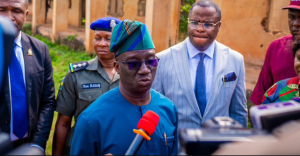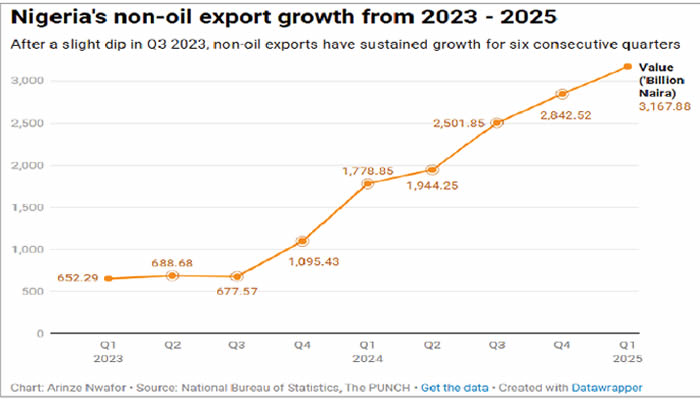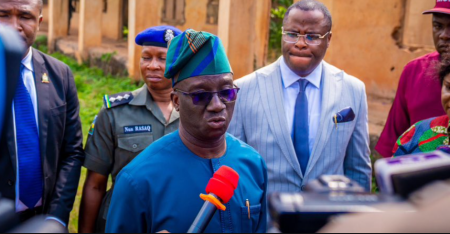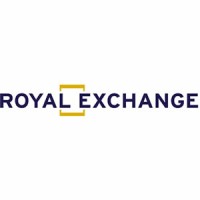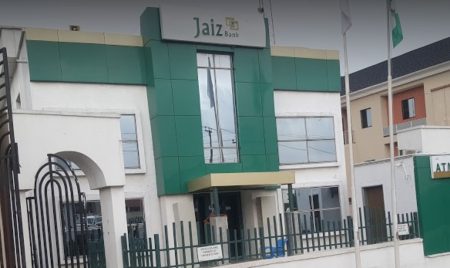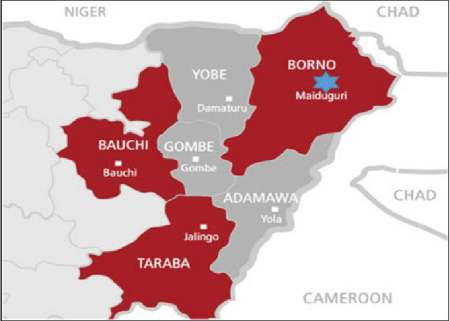Nigeria’s Non-Oil Export Sector: A Paradox of Growth and Data Deficiency
Nigeria’s non-oil export sector has witnessed remarkable growth in recent years, signifying a potential shift away from the volatile oil-dependent economy. The first quarter of 2025 saw non-oil exports reach N3.17 trillion, a substantial increase from N1.78 trillion in the same period of 2024. This upward trend, sustained for six consecutive quarters, is driven primarily by agricultural exports, followed by manufactured goods. While this growth paints a positive picture of economic diversification, stakeholders express concerns that the reported figures significantly underrepresent the actual value of non-oil exports due to the pervasive nature of informal, undocumented trade activities, particularly across land borders with neighboring African countries. This data gap hinders accurate assessment of the sector’s performance and potential, creating challenges for policy formulation and targeted interventions.
The Unseen Hand of Informal Trade:
A significant portion of Nigeria’s cross-border trade, especially with other African nations, occurs informally, escaping official documentation and statistical capture. Small and medium-sized enterprises (SMEs) are the primary drivers of this informal trade, often conducting transactions through unofficial channels and undocumented routes. This informal activity, while contributing significantly to livelihoods and regional economic activity, remains largely invisible in official trade data. Estimates suggest that unrecorded exports could amount to millions of dollars annually, indicating a substantial underestimation of the sector’s true contribution to the Nigerian economy. The Nigerian Export Promotion Council (NEPC) has acknowledged this challenge, reporting tracked but unrecorded transactions exceeding $31.8 million in 2024 alone. This highlights the urgent need for improved data collection mechanisms and collaborative efforts between government agencies like the NEPC and the National Bureau of Statistics (NBS) to capture the full picture of Nigeria’s export activities.
Bureaucracy and Infrastructure: Obstacles to Formalization:
Several factors contribute to the persistence of informal trade and the resulting data gaps. Bureaucratic processes, cumbersome documentation requirements, and the associated costs deter small-scale traders from formalizing their operations. The current system necessitates navigating complex procedures and often requires travelling long distances to complete paperwork, making informal trade, despite its inherent risks, a more practical and appealing option for many. Furthermore, inadequate border infrastructure, coupled with the closure of numerous border crossings, facilitates informal movements of goods and hinders effective monitoring by customs officials. This situation creates a vicious cycle where informal trade thrives due to systemic inefficiencies, further exacerbating the data deficiency and impeding accurate economic analysis.
Smuggling and Price Discrepancies: Further Complicating the Picture:
The problem of undocumented trade is further compounded by smuggling, particularly of petroleum products. Significant price differentials between Nigeria and neighboring countries incentivize illegal cross-border movement of these commodities. While smuggling is not considered legitimate export activity, it adds another layer of complexity to the challenge of accurately tracking trade flows. The lure of higher profits in neighboring markets fuels this illicit trade, undermining official efforts to monitor and regulate cross-border transactions. This highlights the need for a multi-pronged approach that addresses not only bureaucratic hurdles but also underlying economic factors driving informal and illegal trade activities.
Bridging the Data Gap: A Call for Reform and Modernization:
Addressing the data gap requires concerted efforts on multiple fronts. Streamlining bureaucratic processes, simplifying documentation requirements, and establishing more accessible border facilities are crucial steps towards encouraging formalization of trade activities. Investing in modernizing the Nigeria Customs Service, equipping it with advanced technology and enhancing its capacity for real-time tracking of goods, is essential for improving data collection and monitoring cross-border transactions effectively. This calls for increased investment in infrastructure, training, and technology to empower customs officials to perform their duties more efficiently and combat informal and illegal trade practices.
Collaboration and Capacity Building: Key to Sustainable Solutions:
Collaboration between government agencies, private sector stakeholders, and regional partners is vital for developing sustainable solutions. The NEPC’s ongoing efforts to mainstream informal trade, in partnership with the Central Bank of Nigeria and the NBS, are commendable. However, these initiatives must be complemented by broader reforms aimed at simplifying trade procedures, enhancing transparency, and promoting value addition in export activities. Capacity building programs for small-scale traders are also essential to empower them to navigate the formal trade system and benefit from its advantages. By addressing the root causes of informal trade and investing in data collection infrastructure, Nigeria can unlock the full potential of its non-oil export sector and drive sustainable economic growth.


